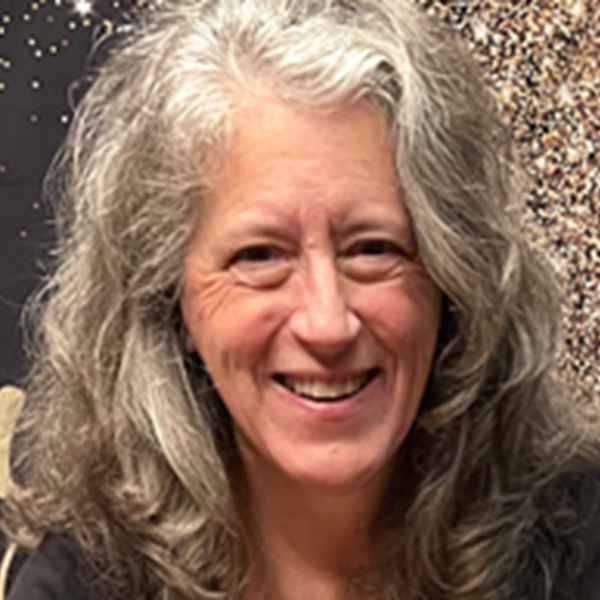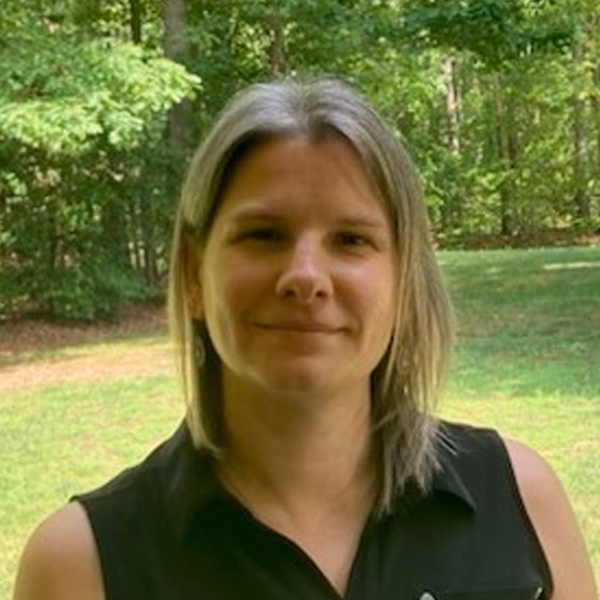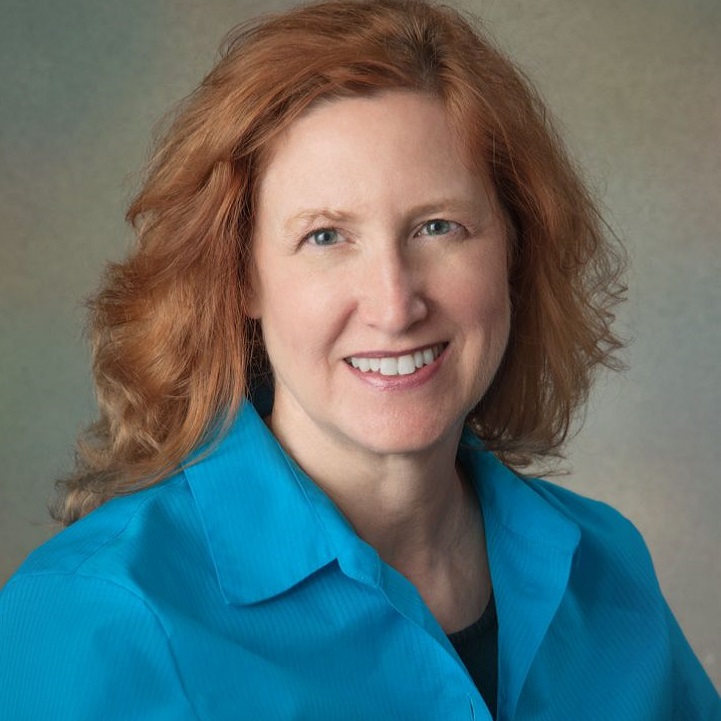2025 Virtual Conference
Sessions
Session Length
Session Topic/Title
Presenter
Session 1:
90 Minutes
Make it Take it!: Creating Engaging Activities for Each Strand of the Reading Rope
Delve into effective literacy instruction with “Make it Take it!” Each strand of the Reading Rope framework will be addressed in a comprehensive model that encapsulates the various components essential for proficient reading. Through hands-on activities, participants will learn how to design engaging and effective instructional materials targeting each strand of the Reading Rope.
From phonological awareness to comprehension and vocabulary acquisition, this course equips educators with the tools and strategies needed to scaffold literacy development across all levels. Drawing on research-backed practices and real-world examples, participants will explore innovative approaches to address the diverse needs of learners.
Learning Objectives:
- Identify and define each strand of the “Reading Rope”, and explain how they differ as well as relate to one another.
- Develop an engaging lesson plan, for each Reading Strand, and explain how Explicit Instruction is necessary for literacy instruction
- Create scaffolded lessons that follow a systematic approach to literacy instruction.

Michelle Andros
Session 2:
90 Minutes
Session 3:
90 Minutes
Strategic & Interactive Writing Instruction (SIWI) Parts 1 and 2
Educators will be introduced to Strategic and Interactive Writing Instruction (SIWI), an evidence-based approach to teaching writing to deaf and hard of hearing students. This session will include an overview of the SIWI driving principles, with actionable steps for beginning SIWI implementation and how to obtain additional professional development.
Learning Objectives
- Educators will be able to create authentic purposes and opportunities for writing.
- Educators will be able to model and engage students in a recursive writing process.
- Educators will be able to integrate explicit instruction of genre-specific text structure.
- Educators will be able to balance attention to writing and language objectives during writing instruction.

Kim Wolbers
Session 4:
90 Minutes
From Interaction to Formal Language – Becoming the Excellent Observer and Thoughtful Communicator with Children who are Congenitally Deafblind, Session 1: Experiencing the World Through the Sense of Touch
The goal of this introductory session is to initiate and provoke thought and conversation from the participant.
Using video examples and hands-on activities we will explore how to initiate and sustain social interaction, share meaningful emotional experiences, and co-create a mutually understood language with our learners who are deafblind. Discussion will also include thoughts on tactile memory, and the importance of the body in the learning experience.
Learning Objectives:
- Participants will gain a deeper understanding of the world from a tactile-bodily perspective – A world without vision and hearing that is based in the tactile-bodily sense.
- Participants will gain a deeper understanding of “The Importance of the Sense of Touch” and how it relates to the co-creation of a negotiated and shared tactile-bodily based language with the learner who is deafblind.
- Participants will gain an understanding of learning from the perspective of a student who is congenitally deafblind; a tactile-bodily learning experience vs. an auditory/visual learning experience.

Christopher Montgomery
Session 5:
90 Minutes
From Interaction to Formal Language – Becoming the Excellent Observer and Thoughtful Communicator with Children who are Congenitally Deafblind, Session 2: The Five Steps of Interaction with children who are congenitally deafblind; applying basic principles of social interaction in the co-creation of a language that does not yet exist
During this session we will explore ideas, topics, and questions for the adult interaction partner of congenitally deafblind learners with emerging language. Using video examples, we will illustrate and discuss five essential elements for beginning, maintaining, and closing an interactive conversation through tactile-bodily communication modes. Discussion will also include an introductory overview of new tools and resources for professionals, families, and adult interaction partners of students who are congenitally deafblind.
Learning Objectives:
- Participants will be introduced to “The Five Steps of Interaction” and gain an understanding of the social-interactive communication process: Noticing, Affirming, Naming, Serve and Return, and Closure
- Participants will gain an understanding of language from the perspective of a student who is congenitally deafblind; a tactile-bodily language vs. an auditory/visual language
- Participants will gain an understanding of the importance of co-creating a mutually understood language with their student

Christopher Montgomery
Session 6:
90 Minutes
Teaching Mathematical Word Problems and Vocabulary to Students Who are Deaf or Hard of Hearing
This presentation addresses the unique challenges faced by educators when teaching mathematical word problems and vocabulary to students who are deaf or hard of hearing. Techniques and strategies will be discussed, and participants will gain insights into enhancing mathematical language comprehension, particularly within the context of American Sign Language (ASL) and word problem solving.
Learning Objectives:
- The learner will increase their understanding of mathematical language and its nuances, especially as it pertains to the use of ASL and word problems.
- The learner will learn how to use a graphic organizer in lessons, that is helpful to students when approaching mathematical word problems.
- The learner will identify the importance of intentional teaching of mathematical vocabulary, and how this knowledge enables students to better understand word problems.

Dawn Kidd
Session 7:
90 Minutes
This session will introduce the topic of “emotion socialization” and emphasize the important role of teachers (and others working in/with school systems) in helping children to learn about emotions. In educational settings, the emphasis is often what the learner is/is not doing or how they are progressing. Importantly, however, through their own actions teachers model appropriate displays of emotion and emotional regulation. This session will engage professionals in considering how they can promote emotional understanding, appropriate emotional engagement, and self-regulation of emotion among children who are deaf or hard of hearing.
Learning Objectives:
- Define “emotion socialization” and describe at least two reasons why it is particularly relevant for children who are deaf or hard of hearing
- Distinguish between “emotion socialization” and “social skills,” providing an example of each to illustrate the difference
- Identify a minimum of two strategies for promoting emotion socialization that could be implemented in one’s work in the next 2-4 weeks and make a plan to incorporate them into practice

Amy Szarkowski
Session 8:
90 Minutes
Fostering Healthy Relationships with Peers: Pragmatics in Action
This session will delve into some of the challenges that children who are deaf or hard of hearing can have in inclusive educational settings and provide actionable strategies to help them develop positive relationships with their peers. Participants will learn about DHH children’s peer relationships through the lens of pragmatics. Particular attention will be given to how professionals might bolster children’s use of their social communication abilities and increase their understanding of how to build and maintain positive connections with classmates.
Learning Objectives:
- Share with another professional at least one relevant fact about “healthy peer relationships” that the participant found interesting, which was informed by the literature described in the workshop
- Generate a list of 2-3 approaches one could use to bring the topic of “healthy peer relationships” to the team discussions regarding supporting children who are deaf or hard of hearing (e.g., IFSP/IEP meetings, departmental meetings, progress report meetings, meetings regarding placement or service provision)
- Identify 1-2 students on one’s caseload/in one’s class who might benefit from particular emphasis on positive peer relationships and establish a plan to implement at least one new strategy for fostering this ability that was discussed in the workshop

Amy Szarkowski
Session 9:
60 Minutes
Collaboration and Involvement: Parents and IEP Teams Working Together
Let’s face it – raising, and educating a deaf or hard of hearing child takes time, energy and resources. Help build a pathway to success by fostering a close working relationship between families and educators. When IEP team members and families work together on goals, pre-teaching and self-advocacy skills, the child has a strong example of the power and importance of teamwork and collaboration. Whether your child has similar peers or is the only deaf or hard of hearing student in school, learn how getting involved can help nurture relationships in an IEP meeting and beyond!
Learning Objectives:
- Recognize the importance of collaboration between schools and families when preparing for IEP meetings
- Understand ways to get involved with your child’s school and help strengthen the relationship with your child’s IEP team
- Explore creative ways to support your deaf and hard of hearing children when resources don’t readily exist and increase your self-advocacy skills

Teri Urban
Session 10:
90 Minutes
Spill the Tea! What Itinerant Teaching REALLY Looks Like
The model of itinerant teaching is not taught in university programs. There is so much to learn when one is new to the profession, or suddenly moved into the job of teaching students, often 1:1. How does one schedule students, plan travel, track student time and progress, collaborate and communicate with colleagues effectively, troubleshoot hearing assistive technology? The list goes on and on. In this session, we’ll cover the basics, because you don’t know what you don’t know.
Learning Objectives:
- The difference between caseload and workload
- Ideas for tracking, scheduling, and self-monitoring
- What questions to ask and how to more effectively ask them

Brenda Wellen
You will receive your own conference login information.
Everyone who wishes to participate in the Supporting Success Virtual Conference must register as an individual. You will receive an individual login and password by email prior to the launch of the conference, so you can access your conference account and view sessions from January 15 – April 15, 2023. If you have not received your login information, please contact questions@success4kidswhl.com with VC Login Needed in the subject line.
Watch any time.
You can watch whichever courses you registered for, in whatever order, and whenever you wish – 24/7 for the 90 day length of the conference. You can go back and rewatch some or all of the course modules if you wish, throughout the 3-month conference period.
Interact!
There will be an opportunity to comment via chat box with other conference participants. Get involved in positive exchanges and information sharing!
Viewing as a Group:
Based on information from prior Virtual Conferences, about 20% of registrants view courses together. The big advantage to a recorded course is that you can pause a module at any time to discuss concepts or how to implement strategies in your situation. Viewing in a group encourages discussion during the included engagement activities and overall, improves the learning experience and likelihood of implementing take-away strategies. Each registered person would login to their conference account individually to download the materials that go along with the course (e.g., PPT handout). When viewing as a group, one person logs into their conference account and shows the course modules via an LCD projector with attached speakers. Only registered virtual conference participants are allowed to view the information. After completing the course, each registrant would login to their conference account to take the course quiz, and when passed successfully, download their certificate or CEU letters. Even after the group has viewed a course, registered individuals can log back into the course and rewatch any portions of the course. There is no discount on registration for viewing as a group.
Obtaining CEUs
Each module of each course must be completed, and the brief quiz passed, before CEU certificate(s) can be downloaded. You have until the last day of the conference, April 15th, to download your CEU certificate(s). CEU CERTIFICATES WILL NOT BE AVAILABLE AFTER THE VIRTUAL CONFERENCE CLOSES. A Certificate of Completion, AG Bell LSLS CEU letter, and an ASHA CEU Verification form will be available for you to choose to download.

